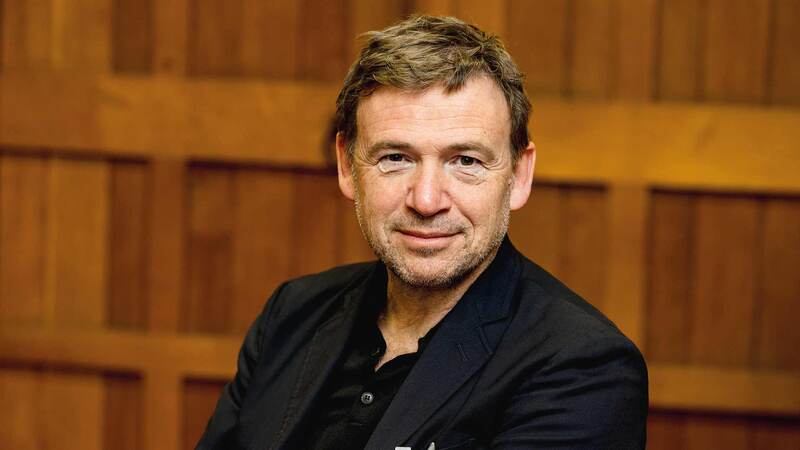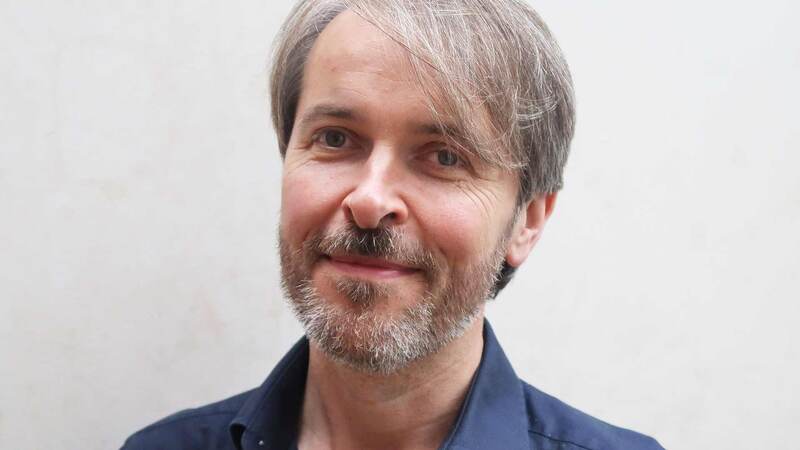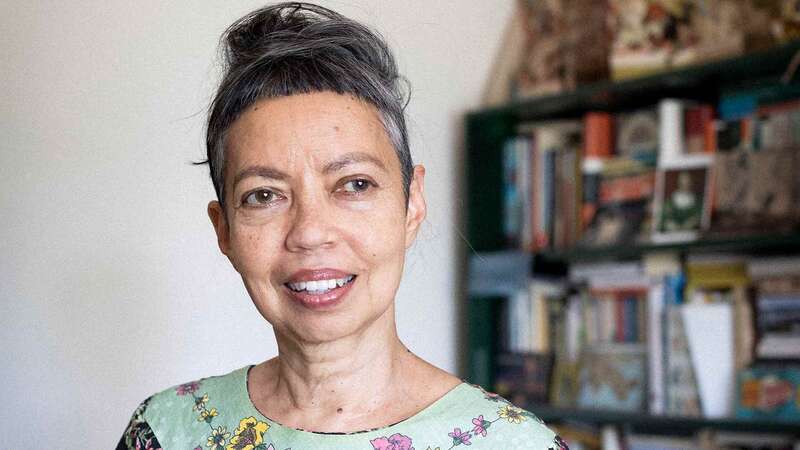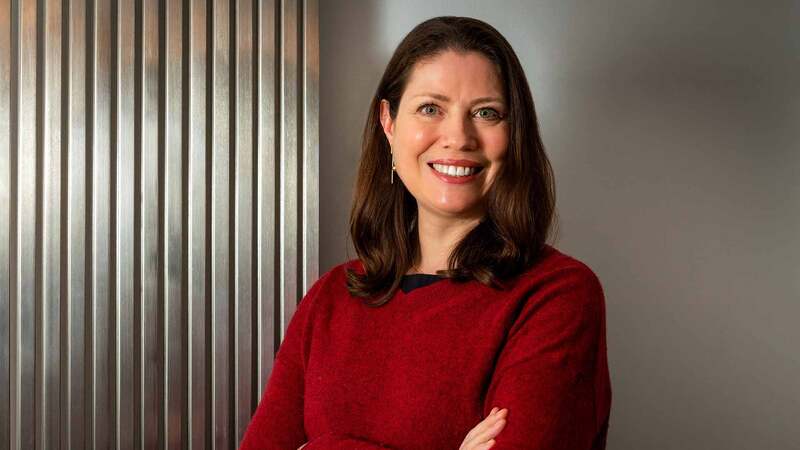You are viewing your 1 free article this month. Login to read more articles.
David Nicholls | 'I didn’t want to do another 50-something man fretting and worrying again'
David Nicholls’ latest recalls the life-changing events of one summer as a man looks back on his first love.
The last time The Bookseller interviewed David Nicholls was in 2009, just prior to the publication of One Day, the novel that would catapult him into the literary stratosphere. Selling an astonishing 1.7 million copies in the UK alone, it remains one of Hodder’s biggest selling titles ever. Nicholls is also a talented screenwriter—"Patrick Melrose", his stunning adaptation of Edward St Aubyn’s Melrose novels, starring Benedict Cumberbatch, has just garnered him a Bafta nomination. But success hasn’t swelled his head in the least. When we meet in a central London coffee shop to talk about his fifth novel, Sweet Sorrow, Nicholls is exactly as friendly and self-effacing as I remember.
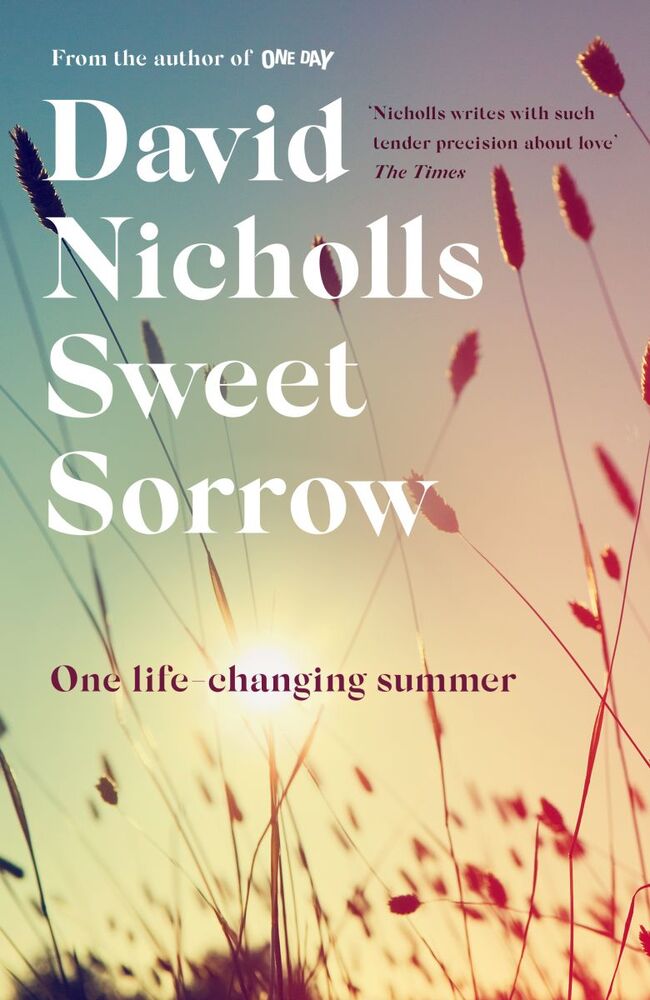 Sweet Sorrow is narrated by Charlie Lewis, now in his thirties, looking back at his 16-year-old self and the events that changed his life over the course of a single summer. The year is 1997—memorable for many reasons, not least New Labour sweeping to power under Tony Blair and the death of Princess Diana. But young Charlie has other preoccupations. His parents’ marriage has disintegrated and he lives with his jobless father, who is sinking into depression. He has messed up his exams and has now left secondary school with no firm plans for the future, other than a part-time, cash-in-hand job at a petrol station on the edge of his small town.
Sweet Sorrow is narrated by Charlie Lewis, now in his thirties, looking back at his 16-year-old self and the events that changed his life over the course of a single summer. The year is 1997—memorable for many reasons, not least New Labour sweeping to power under Tony Blair and the death of Princess Diana. But young Charlie has other preoccupations. His parents’ marriage has disintegrated and he lives with his jobless father, who is sinking into depression. He has messed up his exams and has now left secondary school with no firm plans for the future, other than a part-time, cash-in-hand job at a petrol station on the edge of his small town.
I didn’t want to write about my time of life again. I didn’t want to do another 50-something man fretting and worrying again
The long summer stretches ahead with nothing much to fill it until the day everything changes: he meets a girl, Fran Fisher. She, he discovers, is a member of the Full Fathom Five Theatre Collective, led by two fervently enthusiastic Oxford graduates who want to bring Shakespeare to the masses with a production of "Romeo and Juliet". Charlie can’t think of anything worse, but Fran is playing Juliet and so, if he wants to spend time with her, he will have to join, too.
Over the course of his stellar career, Nicholls has always written about love in one form or another, but this is the first time he has penned a novel about an adolescent boy falling in love. It was prompted by a desire to break a pattern he had spotted in his own work—his leading characters geting older each time. His 2003 début Starter for Ten features a hapless university student obsessed with "University Challenge"; The Understudy (2005) is a painfully funny chronicle of the trials of a struggling and not-very-good actor in his twenties; One Day (2009) follows Dexter from his twenties into middle-age over the course of the novel; and Us (2014) is narrated by Douglas Peterson, a man in his fifties grappling with a mid-life crisis and impending divorce.
"I didn’t want to write about my time of life again. I didn’t want to do another 50-something man fretting and worrying again," he says cheerfully. Instead, what appealed to him this time was "something more youthful, more wide-eyed, less round-shouldered and downbeat".
Nicholls didn’t draw very much on his own teenage years to create Charlie. For a start, he was 32 in 1997. "There’s a danger, if you write about your own era, your own youth, and about characters your own age, that you get stuck, you write your own photo album. You write about things that are very personal to you, but maybe don’t mean anything to anyone else." If he had set it in the summer of 1983, when he was 18, he reckons "the temptation to regurgitate my own past would have been too strong".
Rather than write an autobiographical novel, he wanted to "conjure up a mood, a melancholy, small-town, end of the summer mood". A direct inspiration was the Pulp song "David’s Last Summer", which he describes as a song about trying to hold onto the last days of summer, youth and idealism, but feeling those things slip away.
The summer will change Charlie’s life, chiefly through the "brief, blinding explosion of first love", but in other ways, too. Nicholls originally planned to write a much shorter book. He told Nick Sayers, his long-time editor at Hodder, that it would be a 50,000-word novella, a coming-of-age tale about the experience of first love. But when he started to fill in Charlie’s backstory, he realised that that had the potential to be just as touching and emotional as the love story.
Charlie’s home life is difficult. It transpires that his mother and sister have left the family home, leaving him and his father to it. Nicholls writes of Charlie and his sister, Billie, as children "whispering between bunks like squaddies under the command of drunk and incompetent officers", capturing perfectly the fear children feel when their parents fail to be a constant, reliable presence. Charlie’s dad is not an alcoholic but he is sinking fast into depression. Nicholls has touched on mental health before—he describes Us as "a nervous breakdown of a book about an apparently calm man falling to pieces"—but this time wanted to write about "the pressure of living with someone who is clearly unwell in a way that is quite taboo, particularly in the 1990s".
Teenage kicks
Sweet Sorrow doesn’t shy away from the darker side of Charlie’s life but, as ever, Nicholls is also capable of making the reader laugh out loud. Particularly funny is the banter between Charlie and his teenage mates, "great spiralling flights of abuse" which reach new heights of invention. He finds a rich comic seam, too, in Charlie’s experiences at the youth theatre—the boy playing Romeo is insufferably arrogant. But Nicholls, who worked as an actor before making the switch to writing, explains that the novel was also "written with genuine love of what that experience [of theatre] can do for someone at that stage in their life. Even though Charlie goes into this world thinking it’s all nonsense and this stuff doesn’t make any sense, for a while it does change how he sees the world, and how he feels. I did want to write sincerely about that contact with a culture that you think is not meant for you, or is beyond you."
But Sweet Sorrow is primarily a love story, and Nicholls avoids sentimentality or mawkishness to capture perfectly the angst, the pain and the awkwardness of falling in love for the first time. "You’re trying something on, aren’t you? It’s never unselfconscious," he muses. "Charlie talks about setting out to fall in love because he wants an adventure and it’s easier to fall in love than to solve a murder. That’s not to say that it isn’t important or profound, or that it won’t stay with him for the rest of his life. There is a kind of naïvety and foolishness to it that doesn’t undermine it. There’s a sense that they are putting on voices and trying on personas. I didn’t want to mock that—I wanted it to be moving and affecting.
"I think that for people who idolise their first love, it’s often a nostalgia for that unspoiled, wide-eyed, foolish quality. The other great pleasure of first love is that you’re free of the domestic... It’s the love you have before the business of living kicks in."







